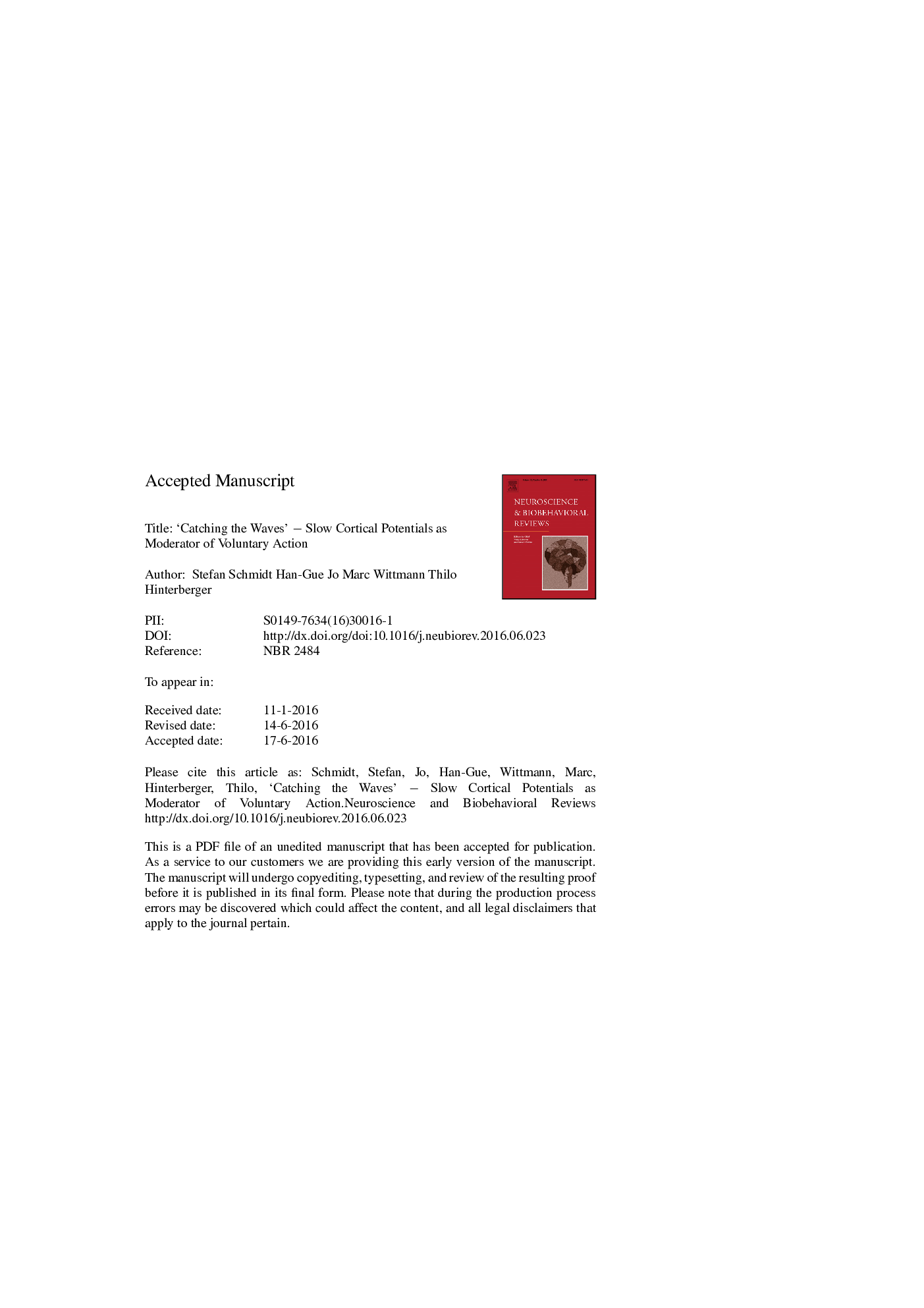| Article ID | Journal | Published Year | Pages | File Type |
|---|---|---|---|---|
| 7302991 | Neuroscience & Biobehavioral Reviews | 2016 | 42 Pages |
Abstract
The readiness potential is an ongoing negativity in the EEG preceding a self-initiated movement by approximately 1.5Â s. So far it has predominantly been interpreted as a preparatory signal with a causal link to the upcoming movement. Here a different hypothesis is suggested which we call the selective slow cortical potential sampling hypothesis. In this review of recent research results we argue that the initiation of a voluntary action is more likely during negative fluctuations of the slow cortical potential and that the sampling and averaging of many trials leads to the observed negativity. That is, empirical evidence indicates that the early readiness potential is not a neural correlate of preconscious motor preparation and thus a determinant of action. Our hypothesis thereafter challenges the classic interpretation of the Libet experiment which is often taken as proof that there is no free will. We furthermore suggest that slow cortical potentials are related to an urge to act but are not a neural indicator of the decision process of action initiation.
Related Topics
Life Sciences
Neuroscience
Behavioral Neuroscience
Authors
Stefan Schmidt, Han-Gue Jo, Marc Wittmann, Thilo Hinterberger,
